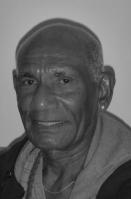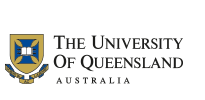Biga Lebasi

In this interview Biga Lebasi talks about his experiences as a journalist before, during and after independence.
| Time | Summary | Keywords |
|---|---|---|
| 00:00:00 |
Jonathan Ritchie introduces Biga Lebasi to talk about his experiences as a journalist before, during and after independence. |
|
| 00:01:00 |
Masawe Sinebare commences the interview with Biga Lebasi. |
|
| 00:01:43 |
Biga Lebasi states that he welcomed the suggestion that Papua New Guinea become one nation separate from Australia. He recalls that blacks and whites lived together well on Kwato Island but that when he came to Port Moresby to attend Sogeri High School he encountered racism, describing an event when he was refused service at the Steamships supermarket. He states that he became bitter and thought independence might be an answer to this racism and he looked to the USA and South African experience. |
Africa, America, Kwato Island, Neil Murray, Port Moresby, racial discrimination, Sogeri High School |
| 00:06:47 |
Biga Lebasi discusses racial discrimination, his experiences in marrying a white woman, examples of leaders around the world and the racism in Australia. |
Australia, Australian Aborigines, Martin Luther King Jr, Nelson Mandela, Queensland, Sue Elizabeth Lebasi |
| 00:09:20 |
Biga Lebasi outlines his motivations for becoming a journalist, stating it was not to expose racism, but because he enjoyed writing essays at school. He recalls that his first career choice had been to become a medical officer ̶ a dentist ̶ but that he had never received a reply to his application. He recalls visiting the newspaper offices and his relationship with the editor. |
journalism, South Pacific Post |
| 00:11:54 |
Biga Lebasi remembers that he first heard about independence at Sogeri. He recalls that due to family circumstances he joined the headmaster's family as a domestic where he had access to Australian newspapers. |
independence, newspapers, Norman Fell, Sogeri High School |
| 00:13:34 |
Biga Lebasi recalls that there was not much discussion about independence at Sogeri, and that he felt he had no one who could provide advice to him. |
Neil Murray, Sogeri High School |
| 00:14:42 |
Biga Lebasi discusses the employment of Papuans at the South Pacific Post, and how he began his working life in the library rather than being given writing assignments. He recalls his first assignment was to cover the Local Government Council meetings at Hanuabada. |
Hanuabada, Local Government Council meeting, Papuans, South Pacific Post |
| 00:17:47 |
Biga Lebasi describes the racial discrimination in Port Moresby in the 1960s when he was restricted where he could sit on the bus and in theatres. He recalls an incident at the Ela Beach RSL club with work colleagues and being refused service. He recalls another incident when he was sent to photograph a society wedding in Lae but not allowed into the reception. |
Ela Beach RSL, Keith Mattingley, Lae, racial discrimination |
| 00:21:27 |
Biga Lebasi recalls that there was much talk about independence in the letters to the editor section of the newspaper. He credits his upbringing on Kwato Island for his own independence. |
Kwato Island, South Pacific Post |
| 00:24:16 |
Biga Lebasi discusses his decision not to renew his membership of the Pangu Party when he became a journalist. He recalls feeling violent about some issues and how his work on the newspaper mellowed his feelings. |
Bully Beef Club, journalism, Pangu Party, South Pacific Post, violence |
| 00:26:52 |
Biga Lebasi discusses security issues around the time of independence. |
Australian Special Branch, National Intelligence Organisation |
| 00:28:19 |
Biga Lebasi discusses his treatment at the South Pacific Post and his first real assigment covering the Local Government Council meeting at Hanuabada. He recalls that he went on to cover question time in the House of Assembly and his impressions of the members of the House of Assembly. |
Hanuabada, House of Assembly, Local Government Council meeting, Matthias Toliman, Motu, South Pacific Post, Tolais |
| 00:32:15 |
Biga Lebasi describes travelling to Melbourne in 1969 and later Brisbane in 1973 to further his journalism training in Australia. He regrets not meeting more Aborigines while in Australia. He describes attending a Moral Re-Armaments conference in Ballarat, Victoria, in his last year at Sogeri and questioning why the organisers had not invited Aboriginal people. |
Australian Aborigines, Bobbi Sykes, Brisbane Courier Mail, Charles Perkins, Kim Beazley Snr, Melbourne Herald and Weekly Times, Moral Re-Armaments, Phyllis Cilento, Raphael Cilento |
| 00:39:26 |
Biga Lebasi recalls that there was no actual connection with blacks in America but that he adopted their music and dress styles. |
America |
| 00:41:31 |
Biga Lebasi describes his interactions with the younger generation and his reactions to criticism about what independence brought. |
independence |
| 00:45:14 |
Biga Lebasi discusses his knowledge of political troubles and potential trouble makers leading up to independence. |
bloodshed, Dawa Solomon, Jack E. Emanuel, John Kaputin, Matanguan, Papua Besena movement, Tolais, Trobiand Islands, violence |
| 00:53:48 |
Biga Lebasi recalls that he was the only black person working in editorial at the South Pacific Post and the problems he encountered as a photographer. |
Dick Pearson, Rabaul, South Pacific Post |
| 00:58:27 |
Biga Lebasi gives his opinion on the Papuan separatist movement and his belief in sticking together. |
Papuans, separatist |
| 01:00:36 |
Biga Lebasi discusses the impact of his upbringing on Kwato Island with the Abel family and the impact that had on Papuans ability to express their opinions. |
Abel family, Kwato Island |
| 01:03:39 |
Biga Lebasi recalls keepings his views on independence to himself and the trouble with some whites at a community hall meeting. |
independence |
| 01:05:27 |
Biga Lebasi discusses localisation at the South Pacific Post and the Post Courier and scholarships for Papua New Guineans to study journalism at the University of Papua New Guinea. |
journalism, localisation, Post Courier, South Pacific Post, University of Papua New Guinea |
| 01:08:30 |
Biga Lebasi expresses his relief at independence of no longer being tied to Australia and how independence personally inspired him in his career. |
Post Courier, wages |
| 01:10:43 |
Biga Lebasi compares students activism between independence and now. |
political activism |
| 01:11:54 |
Biga Lebasi states that after independence his wages did not improve and that whites straight from high school would receive four times his salary. |
Post Courier, wages |
| 01:14:03 |
Biga Lebasi relates how he left the newspaper to join Air Niugini in 1976 which opened up more opportunities for him to travel overseas. |
Air Niugini, Bart Philemon |
| 01:17:34 |
Biga Lebasi discusses the increasing localisation at the Post Courier and Air Niugini. He links the political move to independence with personal growth and change. |
localisation |
| 01:23:10 |
Interview concludes |
Biography

Biga Lebasi
Biga Lebasi is a pioneering Papua New Guinean journalist. He was born on April 9, 1942, near Alotau in Milne Bay. Because of the heavy fighting going on, his family moved to Kwato Island, where young Biga did his primary schooling, and because of the strong missionary influence there, he became an avid reader and writer – values that have stayed with him all his life. He attended the prestigious Sogeri High School from 1957 to 1963 and joined the South Pacific Post (later the Post-Courier) in 1964.
In 1975, Lebasi joined the advertising and public relations department of Air Niugini, PNG’s new national airline, and subsequently worked with the PNG Prime Minister’s department, Word Publishing, Niugini Nius, and The National. From 1997 to 2011 he returned to Milne Bay and is now living on the Laloki River inland from Port Moresby.
Copyright © Papua New Guinea National Museum & Art Gallery, 2025
The copyright holder of this material grants users permission to access the material on this website for the following purposes only: research and study, education, other non-commercial and non-public uses.




